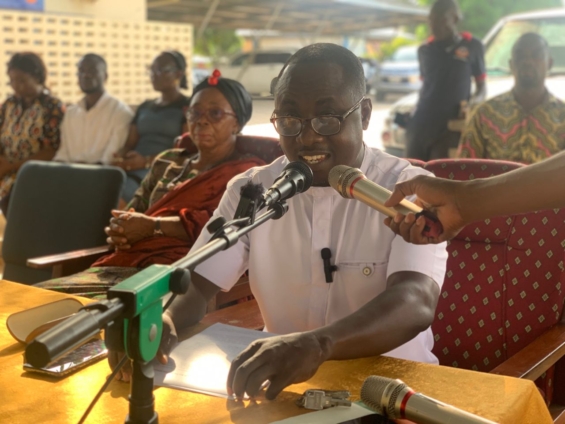In a bid to strengthen local governance and foster effective development, the Municipal Chief Executive (MCE) of Keta, Emmanuel Gemegah, has called for comprehensive capacity-building programmes for Assembly members across all District, Municipal, and Metropolitan Assemblies in Ghana.
His appeal was made during a press briefing where he addressed key issues and highlighted the successes and achievements of the Keta Municipal Assembly.
Mr Gemegah emphasised the urgent need for Assembly members to be equipped with in-depth knowledge of local governance structures and processes.
He pointed out that many assembly members often oppose developmental initiatives due to a lack of understanding of the intricate workings of local governance.
This, he argued, creates unnecessary delays and conflicts that hinder progress in their respective communities.
“Many Assembly members and appointees are dedicated to serving their communities, but without the proper training, they may struggle to fully grasp the significance and complexities of certain proposals or policies,” Mr Gemegah stated.

He stressed that a structured training program would enable assembly members to make informed decisions, engage constructively in debates, and collaborate more effectively with other stakeholders.
During the press briefing, the MCE also highlighted some of the notable achievements of the Keta Municipal Assembly under his leadership.
These include improvements in infrastructure, health, and education sectors, as well as initiatives aimed at boosting local economic development and job creation.
Mr Gemegah credited these accomplishments to the collective efforts of the assembly and the active participation of community members.
He further called on the central government and relevant institutions to prioritize the professional development of assembly members.
“If we are to achieve sustainable development in our municipalities, districts, and metropolitan areas, we must ensure that our local leaders have the necessary tools and knowledge to drive change,” he remarked.

Mr Gemegah underscored the importance of unity and collaboration among assembly members, stressing that well-trained representatives are better equipped to work together harmoniously.
He noted that this would not only enhance decision-making processes but also promote transparency, accountability, and efficient service delivery at the local level.
The MCE concluded by urging stakeholders, including the Ministry of Local Government, Decentralisation and Rural Development, to design and implement capacity-building programs tailored to the unique needs of assembly members.
He also called for partnerships with academic institutions and civil society organizations to deliver comprehensive training modules on governance, policy analysis, and community development.
In response to his call, local governance experts have expressed support for the initiative, noting that investing in the training of assembly members will significantly enhance the overall effectiveness of local governance in Ghana.
They believe that this move could lead to more informed policy-making, better resource management, and, ultimately, improved living standards for communities across the country.
Mr Gemegah’s call serves as a reminder of the critical role local leaders play in national development and the need to equip them with the skills and knowledge necessary to serve their communities effectively.
ALSO READ:

